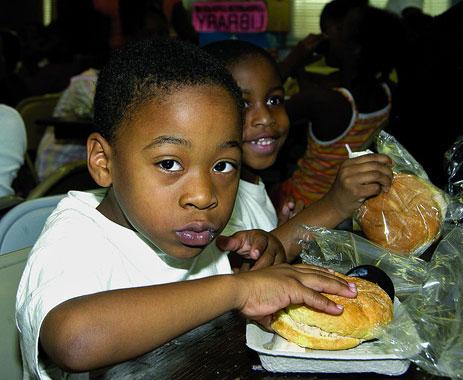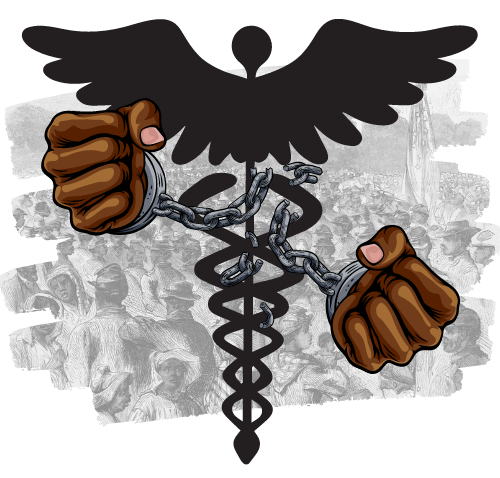On March 11, 2020, the World Health Organization declared the novel Coronavirus COVID – 19 as a Pandemic. According to their site, the WHO Director-General said:
“WHO has been assessing this outbreak around the clock and we are deeply concerned both by the alarming levels of spread and severity, and by the alarming levels of inaction. We have therefore made the assessment that COVID-19 can be characterized as a pandemic. Pandemic is not a word to use lightly or carelessly. It is a word that, if misused, can cause unreasonable fear, or unjustified acceptance that the fight is over, leading to unnecessary suffering and death. Describing the situation as a pandemic does not change WHO’s assessment of the threat posed by this virus. It doesn’t change what WHO is doing, and it doesn’t change what countries should do. We have never before seen a pandemic sparked by a coronavirus. This is the first pandemic caused by a coronavirus. And we have never before seen a pandemic that can be controlled, at the same time.”
The spread of this virus from country to country and the level of passivity from different government responses has caused WHO to come to this conclusion of declaring a pandemic. A pandemic is an epidemic that has spread over several countries or continents, usually affecting a large number of people. So far, the infection rate to possible mortality is low compared to other viral infections such as the flu, but the reported cases are rising everyday as more tests are being done. Even though this may be the case, my fear is the devastating social impacts this pandemic could have on marginalized communities, especially with Black Americans (Descendants of Slavery).
Black Americans that descend from chattel slavery are about 13% of the US population. On average, an Black American family income is roughly around $33-34,000 per year and hold less than 3% of the wealth as compared to whites that hold about 90% of the wealth in the United States according to the Federal Reserve. About 21% of Black Americans (8.9 million out of 36 million) live under the Federal Poverty Line as of 2018. Black Americans unemployment is at least twice as high as white unemployment at the national level. In 2019, the unemployment rate Black Americans in the United States stood at 6.1 percent. This was over 1.6 times the national average of 3.7 percent. Black Americans still face more hurdles to get a job, let alone getting a job that includes employer benefits like paid time off and health care. According to the Center for American Progress, despite Black Americans workers that are Descendants of Freedmen having increased access to jobs and actually getting more jobs, labor market outcomes—including higher unemployment and fewer good jobs—continue to be worse for Black Americans workers and their families. Black Americans regularly experience higher unemployment rates and work in worse jobs, which feature lower pay and fewer benefits, than whites. Moreover, Black Americans tend to work in jobs that are less stable than those held by white workers. For example, Black Americans workers often see their unemployment rates go up sooner than white workers when the economy sours, and their unemployment rates also take longer to decline when the economy improves than is the case for whites—a phenomenon often described as “last hired, first fired.” Moreover, unemployed Black Americans workers look longer to find and secure a new job than do white workers.

Low-income and low-wage earners will likely bear the brunt of the economic impact of coronavirus. According to a recent article in Yahoo Finance entitled Coronavirus to impact low-wage, black workers the most, experts warn as coronavirus continues to slam industries like travel, leisure, and hospitality – workers in these industries also have the lowest amount of access to sick leave, forcing many employees to choose between their health and their paycheck. Only a third of the workforce in the country is able to work from home, according to the Bureau of Labor Statistics (BLS). Nationwide, more than 32 million workers don’t have access to paid sick leave. According to the BLS, 92% of higher-wage earners receive paid sick time compared to their lower-income counterparts — only 31% of workers with salaries in the bottom 10% have this benefit. Paid sick leave also impacts some sectors more than others. According to the Economic Policy Institute (EPI), only 48% of workers in the leisure and hospitality industry have access to paid sick leave. Economically, these workers are the most likely to suffer the most, particularly as many face work hour reductions. These are the ones more likely to be living paycheck to paycheck, and will have a harder time because they have limited resources. As fewer people go to restaurants, travel and spend money at hotels, workers in those industries suffer from reduced business and dollars that can translate into tips.
There is also a showing how this industry will effect these workers in the adverse. In Illinois, Governor JB Pritzker announced shutting down all bars and dine in restaurants in order to help prevent the spread of COVID – 19 on March 15, 2020. According to the Chicago Tribune, the Governor will order all restaurants and bars across the state to be closed to dine-in customers in a further attempt to curb the coronavirus, effective end of business Monday March 16th. Restaurants will remain open to drive through and delivery, sources said in the governor’s administration. In his announcement, he said the closure will be in effect until March 30th.
Complicating matters even more is that low wage workers who have access to healthcare may not take advantage of it because the out-of-pocket costs are too high to afford combined with other expenses. Many Americans sacrifice health for food, gas, and rent. People that are Black Americans are even more so dealing with, often, several issues at once because of already being a lower socioeconomic status. Many Black Americans communities lack resources that have lead to food insecurity or poor nutrition and little or no access to healthcare. These issues coupled with a pandemic only make matters worse.

Black Americans parents are also more reliant on institutions like schools to be available for their children so they can earn a living. Currently, there are school closings announced across the United States from Florida, Illinois, Virginia, Washington and New York. A vast portion of children that are Black Americans rely on free breakfast and lunch programs. This will cause a further state of emergency for the average Black Americans family with having to make difficult decisions from child care to feeding their families. The stark reality is this crisis is one many Black Americans families aren’t economically prepared for on multiple levels.

The Black Americans population also account for a staggeringly disproportionate chunk of the nation’s homeless population, according to a government report. In 2019, an estimated 568,000 Americans experienced homelessness, with Black Americans, primarily Black Americans , making up about 40% of that total, according to the annual Homeless Assessment Report to Congress. The total figure in 2018 was about 553,000. The disparity was starker when looking at the number of homeless people with children: Black Americans accounted for about 52% of that population, with whites accounting for about 35%, the report said. In contrast, 48% of all people experiencing homelessness were white compared with 77% of the total U.S. population, while people who identify as Hispanic or Latino represented about 22% of the homeless population, but only 18% of the overall population. According to the Washington Post article entitled Fears mount about impact of coronavirus on homeless, housing advocates say they fear an outbreak could occur in large homeless encampments where thousands of people live on the street and lack the ability to self-quarantine, receive medical attention, or access cleaning facilities. The article goes on to say that only one homeless person nationwide has tested positive for coronavirus according to a senior presidential administration official. But concerns are mounting for what happens when more do. Homeless people are particularly likely to have additional health conditions that could exacerbate the impact of coronavirus, advocates say, and one study from last year found the homeless to be far more likely to have asthma and other pulmonary conditions. Black Americans, according to a report from Web MD, are three times more likely to die of asthma than white Americans. With the added social detriment of homelessness, this would cause even more worsening with this population.

Congress has passed an emergency bill that they are waiting for the President to sign into law. The bill includes:
- Free Coronavirus Testing: No one will be denied a test due to cost.
- An Emergency Paid Leave Program: Up to two weeks of paid sick leave and up to three months of paid family and medical leave for employers with fewer than 500 employees.
- Food Assistance: Support for nutrition security initiatives, including SNAP, student meals, meals for seniors and food banks.
- Enhanced Unemployment Benefits: States must have the resources and flexibility to provide unemployment benefits to laid off and furloughed workers.
This bill is a start but it isn’t nearly enough for what Black Americans needs since our position in the United States is underpinning. Experts are already saying what we are seeing will get worse before it gets better. Better in the eyes of our current government for Black Americans will never be good enough. The pandemic is a further reminder of the vast inequality in this country. And some people are going to get hurt so much more than others. Because of the social inequity of Black Americans , that hurt will be felt the most and it could be long lasting. Black Americans is already a bottom cast group that have carried the burden of accrued disadvantages through Slavery and Jim Crow. Black Americans has never recovered because no real redress and repair has been exacted. Now with this pandemic, the social and economic standing of this group will suffer more than just infection. The barriers to be able to access the proper resources that one would need to survive will only rise.

We are past time for repair and redress. The Black Descendants of Chattel Slavery are in dire need of reparations. The debt is owed and far overdue. Without our socio-economic position changing, all social determinants of health will be affected in the adverse for this group. Dr. Martin Luther King Jr. said, “If America is to remain a first-class nation, it cannot have second-class citizens,” Black Americans is still waiting for their full access to citizenship with the rights and privileges that come with it. How long should we wait? Where we are shows we cannot wait much longer.

- Cynthia McDonald Social Worker and Reparationist


Excellent!!!!!
LikeLiked by 1 person
WOW!! Great read!
LikeLiked by 1 person
Hey! Would you mind if I share your blog with my facebook group? There’s a lot of people that I think would really enjoy your content. Please let me know. Cheers
LikeLiked by 1 person
Please do and don’t forget to encourage them to subscribe.
LikeLike